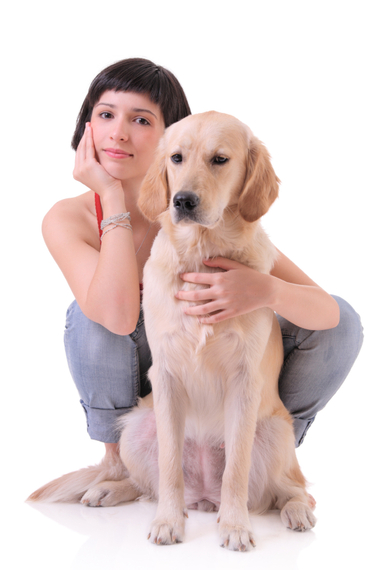The woman on the phone sounded anxious. She needed a trainer to come to her house today. When asked about the urgency, she replied that she was bringing a four-month-old puppy home, and needed help introducing her to her other dog. The resident dog was a 10-year-old small breed who was dog-aggressive. When I questioned politely whether that might not be the best situation for either dog, she replied that she also had a two-foot-long lizard, and although the small dog had been aggressive toward the lizard at first, she'd taught him to turn away and not make eye contact. That had put a stop to the aggression, she said, and she planned to do the same when it came to the new puppy.
She went on to complain that two different rescue groups had brought dogs over for potential adoption, but when they'd let the dogs down on the ground together, the 10-year-old had gone after the other dog, and the rescue groups had refused the adoption. Oh, and by the way, the puppy she intended to bring home was a shy, fearful dog. I took a deep breath. Then I patiently explained why it was a terrible idea.
First, bringing a dog who is already shy and afraid into a home with a dog who is dog-aggressive could only make things worse for the poor pup. Second, the resident dog has already demonstrated more than once that he does not like other dogs, and certainly does not appreciate them in his home. If you were a senior who didn't particularly like the company of other people, how would you like it if a rambunctious child moved in? Even if the dog could be taught to ignore the puppy, think about the stress it would cause him. I listed the physical issues that chronic stress can cause in dogs (including suppression of the immune system, which opens the door for all sorts of disease); and this was not a young dog. There's that plus the emotional and mental stress to consider, for both dogs and everyone living in the house. The woman listened, and by the end of the conversation, she said she could see my points, and would consider what I'd said.
I don't know whether she ultimately decided to adopt the puppy. But the whole situation begs the question: when do we stand back and consider what's best for our dogs, as opposed to our own wants and desires? I know people who do agility with their dogs, and the dogs absolutely love it. I know others who wanted to participate in agility so they got a specific breed -- only the particular dog doesn't seem to like it anywhere near as much as the person does. In fact, the dog seems not to enjoy it at all, and yet the pair continues to compete. I know people who bring their dogs to the dog park because they enjoy socializing with other owners. The dog, in the meantime, does her level best to stay away from other dogs, and becomes defensive if any come near. She clearly does not enjoy herself and seems perpetually stressed. And yet the park visits continue.
We all have an idea of what we'd like life to be like with our dogs. Depending on our own lifestyle, we might need a dog to be social around kids, be athletic, be dog-friendly, or any of a host of traits. But sometimes the dog we get is not the dog we want (hello, have you read Hit by a Flying Wolf?). And that's okay. We can certainly do our best to train, socialize, counter-condition, and habituate our dogs to the things we'd like them to be okay with. But in the end, sometimes it's we who have to adjust our expectations and perhaps even our lifestyle. Because in the end, it's not all about us -- it's about our dogs.

